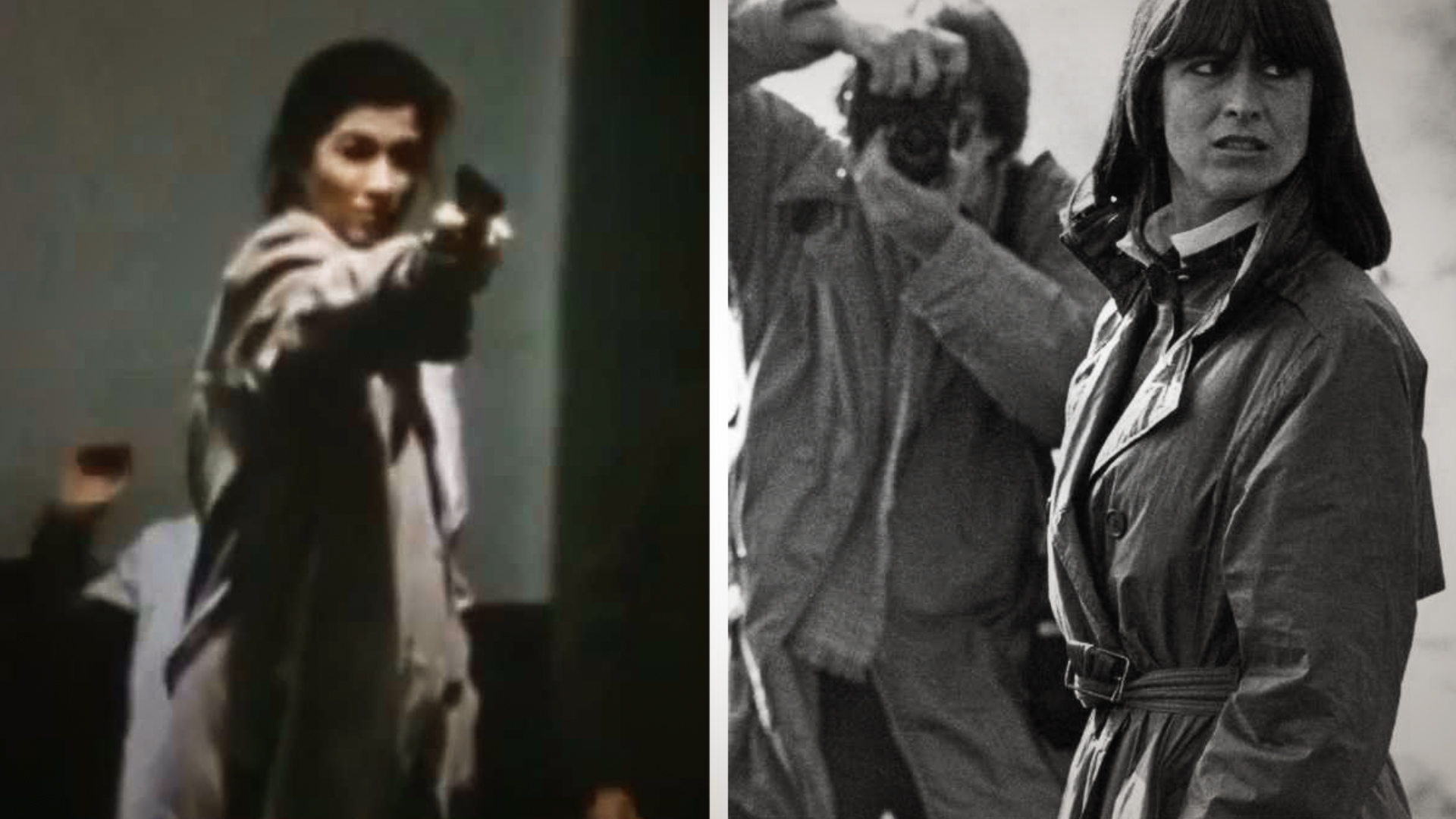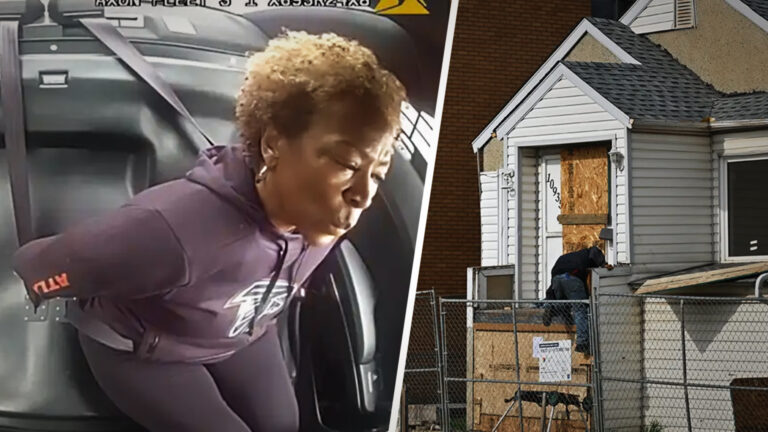A Mother’s Revenge: The Heartbreaking Story of Marianne Bachmeier and Her Unforgettable Act of Justice

The story of Marianne Bachmeier is one of intense emotion, unimaginable grief, and a desperate act that continues to ignite conversations worldwide. This German mother’s response to the murder of her seven-year-old daughter, Anna, shocked the world in 1981 when she took justice into her own hands during the courtroom trial of her daughter’s killer. Her act of vengeance raises profound questions about morality, justice, and the limits of human endurance in the face of unspeakable loss.
Marianne Bachmeier took matters into her own hands. Credit: United Archives/Getty
The Tragic Loss of Anna Bachmeier
In May 1980, seven-year-old Anna Bachmeier was abducted and murdered in Lübeck, Germany. The crime sent shockwaves through the local community. The perpetrator, Klaus Grabowski, was a convicted pedophile with a disturbing criminal history. Despite prior convictions for child molestation, he had been released back into society, sparking outrage after Anna’s tragic death.
On the day of her murder, Anna had a disagreement with her mother and decided to skip school. Unfortunately, this decision led her into the clutches of Grabowski, who lured her into his home. After holding her captive for hours, Grabowski killed Anna, leaving her lifeless body in a cardboard box near a canal. His fiancée, suspicious of his actions, alerted the authorities, leading to his arrest.
A Painful Trial Begins
Grabowski’s trial brought the horrifying details of Anna’s murder to light. It was revealed that he had previously undergone chemical castration as part of his rehabilitation but later sought hormone treatments to reverse the effects. Despite his troubled past, he had been allowed back into society—a decision that would prove catastrophic for Anna.
As the trial progressed, Anna’s mother, Marianne, found herself sitting in the courtroom, listening to the graphic details of her daughter’s final moments. Her grief and anger grew as the man responsible for her child’s death faced what she believed to be an inadequate system of justice.
The Day Marianne Took Justice Into Her Hands
On March 6, 1981, Marianne Bachmeier entered the courtroom with a small pistol hidden in her handbag. As the trial continued, she pulled out the weapon and fired eight shots at Klaus Grabowski. Six of the bullets struck him, killing him instantly. The courtroom, filled with attorneys, witnesses, and observers, erupted into chaos.
The mother killed her daughter's killer in the courtroom. Credit: United Archives/Getty
Witnesses later recalled Marianne’s words as she fired the gun, referring to Grabowski as a “pig” and expressing her anguish. Her actions were not a spur-of-the-moment outburst; they appeared premeditated, sparking debate about her intentions and mental state at the time.
The Legal Consequences
Marianne’s courtroom act of revenge landed her in custody, where she awaited trial for the killing of Klaus Grabowski. Prosecutors charged her with premeditated manslaughter, and her case became a media sensation. The trial posed difficult questions about justice, morality, and whether her grief could justify such an extreme act.
In 1983, after lengthy legal proceedings, Marianne was convicted of premeditated manslaughter and unlawful possession of a firearm. She received a six-year prison sentence but was released after serving three years. The relatively short sentence reflected a degree of public and judicial sympathy for her unimaginable loss.
Public Reaction: Sympathy and Controversy
Marianne’s actions sparked widespread debate across Germany and beyond. Many sympathized with her plight, viewing her as a grieving mother pushed to the brink by a legal system that seemed incapable of delivering adequate justice. Others, however, condemned her for taking the law into her own hands, arguing that vigilante justice undermines the rule of law.
Her case ignited passionate discussions on issues such as:
- The Failures of the Justice System: Critics argued that the system failed to protect Anna by allowing a known pedophile to walk free.
- Parental Grief and Justice: Supporters saw Marianne’s act as a visceral, if unlawful, expression of maternal love and anger.
- Ethical Dilemmas: Could her actions be morally justified despite their illegality?
Marianne’s Life After Prison
Following her release, Marianne Bachmeier largely retreated from the public eye. She later spoke about her act of vengeance in interviews, expressing mixed feelings about her decision. While she admitted to regretting the act at times, she also believed that Grabowski’s death brought some closure to her overwhelming pain.
Marianne moved abroad for a period, living in countries like Nigeria and later returning to Germany. She remarried and lived a relatively quiet life until her death from cancer in 1996.
The Ongoing Debate Around Vigilante Justice
Marianne Bachmeier’s story continues to resonate with people around the world, reigniting discussions about vigilante justice and its implications. Her actions raise difficult questions:
- Should grief and trauma mitigate punishment for unlawful acts?
- Can personal vengeance ever be justified in a society governed by laws?
- How should legal systems address victims’ frustrations when justice feels inadequate?
Her case highlights the emotional and moral complexities of justice, forcing society to grapple with the tension between law and humanity.
The Legacy of Marianne Bachmeier
Marianne’s story remains a powerful reminder of the depths of parental love and the devastating impact of losing a child to violence. While her actions were illegal, they also symbolize the profound grief and anger that can drive a person to extremes.
In 2022, a dramatic reenactment of the courtroom shooting surfaced online, sparking renewed interest in her case. Social media discussions reflected a mix of admiration, sorrow, and debate about her act of vengeance.
One commenter on the video wrote:
“A mother’s rage is unstoppable. She did what the system couldn’t.”
Another noted:
“The officers didn’t tackle her—they gently lowered her arm. It’s as if everyone in that courtroom understood her pain.”
Final Thoughts
The case of Marianne Bachmeier challenges us to think deeply about the concepts of justice, morality, and the human capacity for forgiveness. While her actions were undoubtedly extreme, they underscore the profound emotional toll of losing a child and the lengths a parent might go to seek retribution.
Marianne’s story is a poignant reminder of the flaws in our justice systems and the need for empathy, understanding, and reform. Her legacy, though controversial, continues to captivate and provoke thought decades later.
Featured image credit: United Archives/Getty








